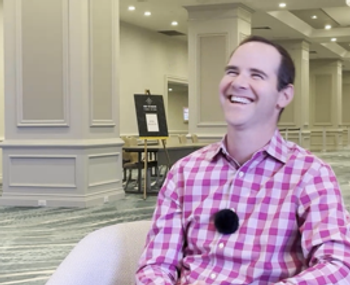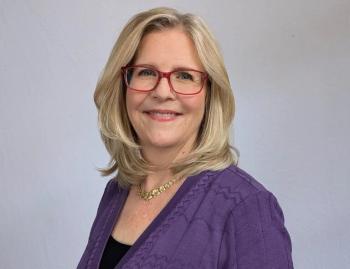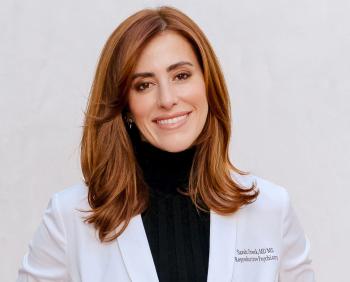
Get That Piece of Paper
Dad excelled at his craft and was the natural choice for promotion to supervisor of the machine shop when the incumbent retired. But the company told him it just wouldn’t "look right" to have a person with only an 8th-grade education.
PORTRAIT OF A PSYCHIATRIST
– Series Editor, H. Steven Moffic, MD
I always wanted to be a doctor. I don’t know why. There were no doctors in the family.
My dad was a machinist at a machine tool company. Both Dad and Mom had only an 8th-grade education. But what they lacked in reading, writing, and arithmetic they made up for in determination, hard work, and innate wisdom.
Dad excelled at his craft and was the natural choice for promotion to supervisor of the machine shop when the incumbent retired. But the company told him it just wouldn’t look right to have a person with only an 8th-grade education in that important position on the company roster. So they bypassed him.
Dad was disappointed, of course. But he told me: “Darold, get that piece of paper. It’s your ticket to the future. I don’t care if you want to be a plumber, minister, or doctor. Get that piece of paper.”
So I did. Dad was right. That piece of paper served me well. I got into University of Wisconsin School of Medicine after 3 years of pre-med. I then completed a rotating internship (remember those?) at Sacred Heart General Hospital in Eugene, Oregon.
My assignment was to Winnebago Mental Health Institute, which had 800 patients. About 30 patients were under age 18, so I had the opportunity to start a children’s unit. Most of the children were autistic or had other developmental disabilities.
Four children in the unit caught my eye. One lad had memorized the bus system of Milwaukee. If you told him the time of day, he could tell which bus was rounding what corner in the city. Another could rapidly assemble a 200-piece jigsaw puzzle picture-side down just from the geometric shapes.
A third boy was an expert on what happened on each day in history. When I made my morning rounds, he would quiz me. I tried to bone up the night before (and that was in the day of the encyclopedia), but I could never top his list. And then there was Billy, who made free throws. He would hold the ball in exactly the same way, put his feet in exactly the same position, and since the free throw has a fixed trajectory, his free throws always went in.
So I developed a special interest in "savant syndrome," a rare but remarkable condition in which persons with some underlying disability-often but not always autism-have some “Island of Genius,” or ability that stands in marked contrast to overall limitations. I have written two books on this condition:
I first met a "savant" in 1962 and have now collected hundreds of cases of congenital, acquired, and sudden savants. Each of these categories is described or seen on video on a website I have maintained through the
Of course, “autistic savant” became a household term following the movie Rain Man, in which Dustin Hoffman portrayed Raymond Babbitt so realistically. I was a consultant to that movie and sought to ensure that it be accurate, with respect to real-life savant skills, and that the characters be sensitively portrayed.
My first career opportunity was serendipitous. The next opportunity came when the Superintendent of Winnebago Mental Health Institute decided to leave that post and move to Hawaii. I was asked if I would serve as interim Superintendent. I liked administrative psychiatry and served 15 years in that capacity. Later in my career I headed up a community mental health center for 12 years. And I completed the last days of formal clinical practice in private practice.
I didn’t plan each of those moves, but psychiatry presents a wealth of opportunities and it is prudent to be open to them. Presently, I am Research Director at the Treffert Center. I began my career surrounded by children. Now here I am again surrounded by the welcome sounds of children in the Treffert Academy, a strength-based, integrated education and treatment school for all children, some with developmental disorders.
Lesson: When you have that piece of paper, be open to all sorts of career options as they present themselves, as they surely will. Whenever I speak to students at whatever level, I encourage them to get that piece of paper and I contribute to scholarships whenever I can.
Recently, I was asked to speak to a group of 4th graders about my lifework studying autism and savant syndrome. I was scared stiff. What do you say to a group of 4th graders? I usually speak to adults.
But the grade schoolers were well prepared, and the questions were numerous and sophisticated. “Why are there more male savants than female?” “How come so many savants know how to calendar calculate?” “Might there be some savant abilities in all of us?”
At the end of the lecture a little boy and girl came up to ask some more questions. “I want to be a neuroscientist when I grow up,” Johnny said.
“Me too,” Jane chimed in.
I have had many satisfying moments in my career. But the crowning moment will be when Johnny and Jane walk across that stage to get their graduate certificates-that “piece of paper”-that will enable them to carry on the work I have begun and take us further than we have ever been in fully understanding both the brain and human potential.
When that happens, I would like to think my little lecture might have had some motivating effect for Johnny and Jane to get that piece of paper. That’s why I lecture frequently to young people.
Dad would be proud.
Dr Treffert is Research Director at the Treffert Center, Agnesian HealthCare in Fond du Lac, WI. Now semi-retired, he served as Clinical Professor at the University of Wisconsin School of Medicine and Public Health and the University of Wisconsin-Milwaukee.
Newsletter
Receive trusted psychiatric news, expert analysis, and clinical insights — subscribe today to support your practice and your patients.







